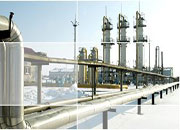But given the effects of previous sanctions, especially recent moves by Canada and the EU, Chinese experts said these sanctions have failed to achieve their aims in the short term, and the EU is becoming more aware of the fact that the union will suffer more damage if it continues to follow the US in increasing sanctions against Russia.
Preparations by EU ambassadors for the new, seventh package are to resume on Thursday and Friday, and are likely to be approved by member states by the middle of next week, several EU diplomats told EURACTIV.
It will also widen a list of dual-use goods banned for export to Russia and include more listings of individuals and entities tied to Russian President Vladimir Putin's wider circle, EURACTIV reported, citing several EU diplomats.
Some member states continue to push for more measures on energy to be added to the next packages, while other EU diplomats stress there is no chance for such an option, as a number of European countries remain highly dependent on Russian energy imports, especially gas, according to media reports.
Czech Prime Minister Petr Fiala told Reuters on Wednesday, "The European Union is preparing a seventh package of sanctions against Moscow but it is already clear that it will not curb imports of Russian gas as too many member states can't adjust quickly enough."
The move was agreed at a G7 summit last month by EU members France, Germany and Italy with their counterparts from the US, Canada, Japan and the UK. The first six rounds of sanctions included asset freezes and visa bans on Russian oligarchs and officials, export controls, freezing central bank assets, cutting banks out of the SWIFT messaging system and banning imports of Russian coal and oil.
It also came amid US President Joe Biden's ongoing visit to the Middle East, as observers believe the US could launch a "Middle East NATO" to counter Iran and convince Gulf states to increase global oil supplies to ease the energy crisis caused by the Ukraine crisis and the Western sanctions against Russia.
"The so-called seventh round of sanctions aims to impose sustained pressure on Russia. Such pressure cannot stop, just like the aid to Ukraine, but it does not matter what kind of sanctions they are," Cui Hongjian, director of the Department of European Studies at the China Institute of International Studies, told the Global Times on Thursday.
However, the sanctions could be largely symbolic, as the EU is divided on this issue, Cui said.
Some countries that have cut their dependence on Russian gas are more active in pushing it forward, but others would be more hesitant as such a ban would have a huge effect on them, the expert noted.
Since the outbreak of the Russia-Ukraine conflict, the US has been trying to incite European countries to provide assistance to Ukraine and launch multiple rounds of sanctions against Russia. As the sanctions escalated, the US, which is less dependent on energy and trade with Russia, suffered less damage.
However, European countries, which have a very close and interdependent relationship with Russia in industry and energy, have faced and experienced a massive backlash on their enterprises and people's lives.
An article entitled "How Russia broke the blockade of Kaliningrad" published by Russian newspaper Vzglyad on Thursday said the West has backed away from sanctions against Russia for the second time in recent days, citing Canada's plan to allow the delivery of a key component to help deliver Russian gas to Germany, despite appeals from Ukraine to hold off on returning the equipment.
Meanwhile, the EU has sought to reduce tensions with Moscow over Kaliningrad by indicating it was not seeking to block shipments of sanctioned goods from reaching the Russian territory, Financial Times reported on Wednesday.
Following weeks of tensions among Moscow, Lithuania and the EU that Reuters said tested Europe's resolve to enforce sanctions on Russia, Lithuania said on Wednesday that it will allow sanctioned Russian goods to transit its territory on their way to Russia's Kaliningrad exclave, reversing its policy after new European Commission guidelines.
Bordered by EU states, Kaliningrad, which relies on railways and roads through Lithuania for most of its goods, has had some freight transport from Russia cut off since June 17 under sanctions imposed by Brussels.
"The West's sanctions against Russia are now unsustainable, as the double-edged nature of sanctions is becoming increasingly obvious. The risk of inflation, and even economic recession, stagflation, now hangs over the world economy. European countries have begun to question whether they have been fooled by the US," Wang Yiwei, director of the Institute of International Affairs at the Renmin University of China, told the Global Times on Thursday.
Leading the world comes at a price, and whether the US still has the ability to lead an anti-Russia alliance is questionable as the country is weighed down by its own domestic problems, Wang said.
Cui said it will take some time for the sanctions to be implemented, and EU countries have their own calculations on when to take real actions.
Chinese analysts said that from the perspective of short-term results, the sanctions have failed to achieve their aims. But the majority of EU countries are waiting for the full impact of sanctions to be manifested on the Russian economy.
Whether they will have a great influence in the long term is not yet known, but sanctions are not the right way to stop a conflict, they said, stressing that the Ukraine crisis can only be resolved through dialogue and negotiation.


